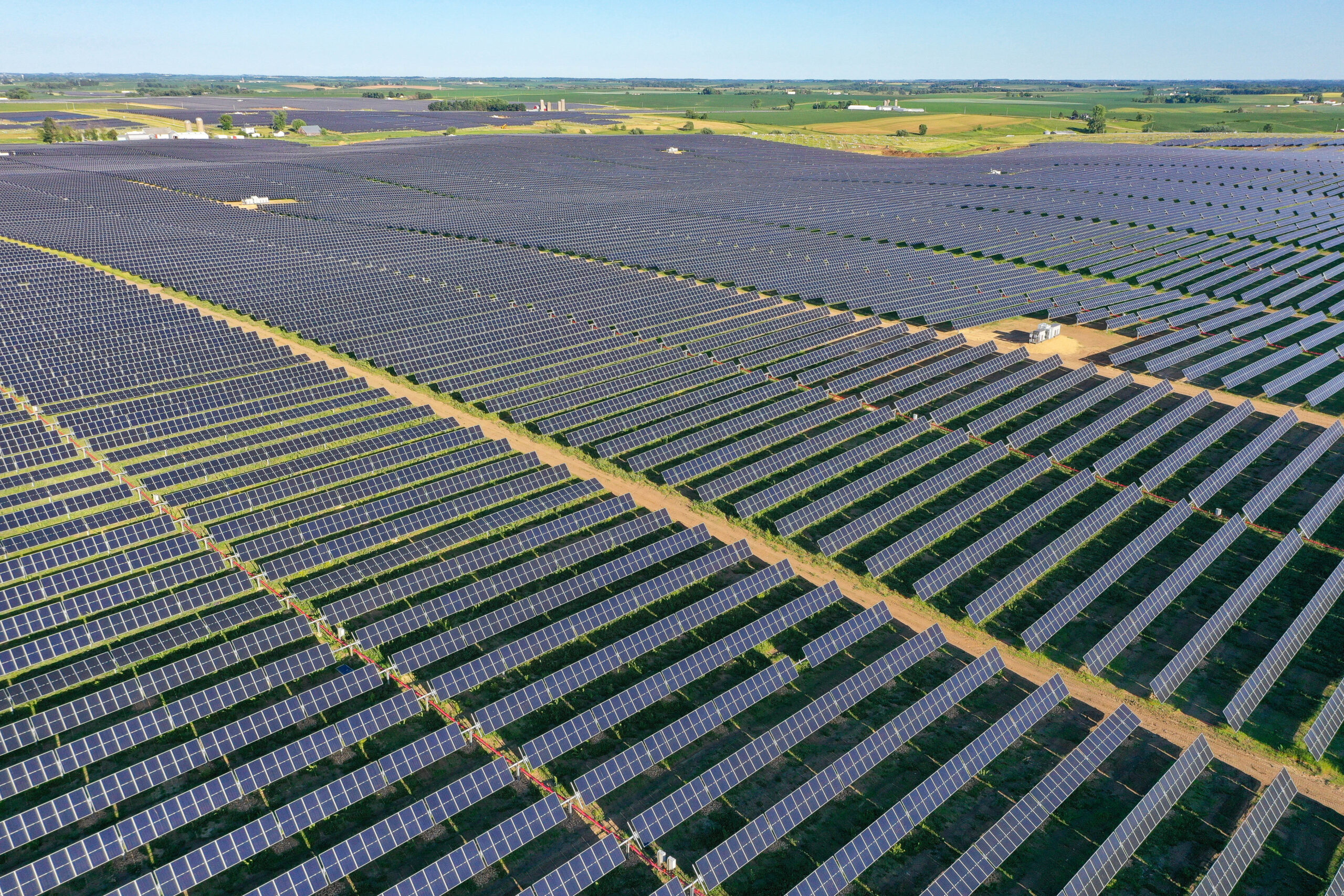Wisconsin now has more than 73,000 clean energy jobs, and a new report finds those numbers were boosted in large part last year by the Inflation Reduction Act.
The findings come from the latest Clean Jobs Midwest report released by the nonpartisan business group Environmental Entrepreneurs and nonprofit organization Evergreen Climate Innovations.
According to the report, Wisconsin added almost 2,200 clean energy jobs during the first full year after the landmark climate law was passed, investing roughly $370 billion toward a clean energy economy. Clean energy jobs rose 3.1 percent last year. The report ranks the state 17th in the nation for clean energy jobs.
Micaela Preskill, director of state advocacy for Environmental Entrepreneurs, said clean energy jobs grew at a rate almost four times faster than Wisconsin’s overall economy.
“When it comes to supporting a state’s economy, clean energy is an industry to put our money on because we know that when we invest in clean energy, the economy benefits,” Preskill said. “In Wisconsin, which is similar to all the other states in the Midwest, we’re seeing real, significant gains.”
The Milwaukee metro area ranked seventh in the Midwest for the most clean energy jobs with more than 23,000 workers.
The vast majority — 77 percent — of the state’s clean energy jobs included around 56,800 workers who install energy efficient lighting, heat pumps and air conditioning systems. The clean vehicle and renewable energy sectors employed around 19 percent of clean energy workers, 6,700 jobs and roughly 7,100 jobs respectively. Around 4 percent worked in grid storage or clean fuels.
Isaiah Ness, CEO of Sun Bear Industries in Green Bay, said his business focuses on economic development within minority, tribal and economically disadvantaged communities through installation of renewable energy in housing. He said the work is important to him because no one should have to worry about whether they have affordable, reliable power.
“We’re in a position now where a lot of the grant programs and direct pay options through the (Inflation Reduction Act) have made renewables possible and made it not as big of a climb when working with the utility companies,” Ness said.
Clean energy jobs in the state grew at a slightly slower rate last year than the Midwest as a whole, which increased 3.9 percent to roughly 761,000 jobs in 2023. Although, jobs added in clean transportation grew 9.1 percent, making it the region’s fastest-growing sector last year. Clean energy jobs are expected to grow by almost 4 percent this year and nearly 6 percent across the Midwest.
Groups say around 90 large-scale clean energy projects have been announced in the Midwest, representing around $31.2 billion in private-sector investment.
There have been dozens of attempts to repeal the landmark climate law. Former President Donald Trump said he would rescind any unspent funds under the Inflation Reduction Act if re-elected.
Preskill said there shouldn’t be anything political or partisan about creating jobs and boosting the economy.
“We know these federal policies are working. This report shows that clean energy jobs are growing faster than the overall economy,” Preskill said. “They’re bringing new private investment, creating jobs, and we have to keep that going.”
According to the White House, Wisconsin is set to see around $4 billion for large-scale renewable energy and storage through 2030 under the Inflation Reduction Act.
Democratic Gov. Tony Evers released the state’s Clean Energy Plan in 2022. That plan seeks to speed up deployment of clean energy projects, maximize energy efficiency, update building codes and support the transition to electric vehicles. The plan estimates Wisconsin could create more than 41,000 jobs by 2030.
Evers has been at odds with the Republican-controlled Legislature over clean energy development and efforts to combat climate change.
Last year, two GOP bills sought to prevent state and local governments from passing mandates that aim to shift away from vehicles or stoves that run on gas in favor of those powered by electricity. Another proposal sought to prevent communities from requiring specific sources of energy.
Republican lawmakers and supporters said the proposals sought to protect consumer choice. Evers vetoed the bills and said they would diminish the state’s ability to combat climate change.
In August, the Department of Energy said the nation added 142,000 clean energy jobs last year, growing 4.2 percent.
Stay informed on the latest news
Sign up for WPR’s email newsletter.
Wisconsin Public Radio, © Copyright 2024, Board of Regents of the University of Wisconsin System and Wisconsin Educational Communications Board.

